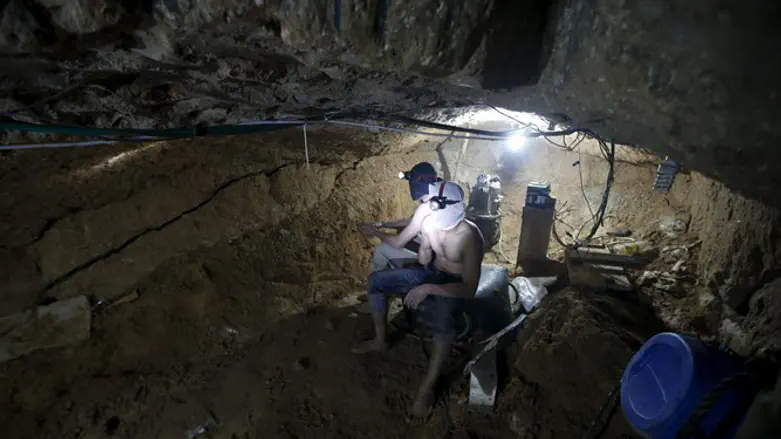
Hamas condemned Egypt on Saturday after three people died after inhaling toxic gas in a smuggling tunnel beneath Gaza's border with Egypt.
Gaza’s Interior Minister said the three were working to repair the tunnel a day after the Egyptian military blew it up, according to The Associated Press.
The bodies were recovered Saturday and sent to a hospital in the town of Rafah, according to the news agency.
Hamas used strong language in condemning the Egyptian government over the incident, saying, according to a statement posted on its website, that Egypt's "dangerous ways of dealing with people in Gaza Strip are unjustified.”
The terror group which controls Gaza also called on Egyptian authorities to permanently open the Rafah crossing between Gaza and Egypt in order “to end the people’s suffering in Gaza Strip.”
Egypt in recent years has been cracking down on the underground tunnels between the Sinai Peninsula and Gaza, which terrorists use to smuggle terrorists and weapons from Egypt into the coastal enclave.
These tunnels were a lifeline for Hamas, which collected millions of dollars in taxes and revenues from the smuggled goods.
As part of the crackdown on the tunnels, Egypt often floods the tunnels in order to render them ineffective, ignoring Hamas’s pleas that it stop doing so.
Hamas enjoyed good relations with former Egyptian President Mohammed Morsi, a member of Hamas’s parent group, the Muslim Brotherhood.
However, relations have been tense under current President Abdel Fattah Al-Sisi due to his crackdown on Hamas tunnels.
In an attempt to improve strained ties, Hamas leader Ismail Haniyeh recently met in Cairo with Egyptian officials to discuss ways to improve the strained relations.
Haniyeh later claimed that Hamas had opened “a new page” in its relations with Egypt, adding that the group is interested in maintaining close contacts with Egypt and intends to remove all causes of concern for the Egyptian leadership, especially in the field of security.
